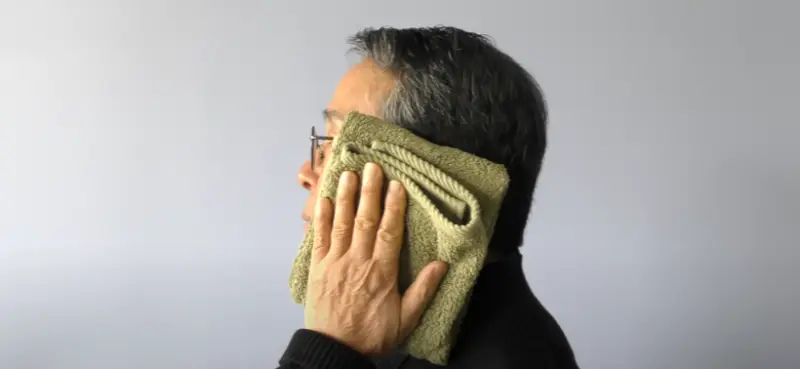Swollen Glands that swell suddenly and are painful are usually caused by injury or infection. Cancer or tumors may cause slow, painless swelling. Some nodes are sore, stiff, or increasing or fixed to the skin. Pupils or other substances drain from nodes.
When a cyclist experiences swollen glands in the neck, it can be attributed to various causes. These may include skin or wound infections like cellulitis, inflammation, glandular fever allergies, lupus, or common illnesses such as colds or the flu.
This post will guide you through the potential causes of swollen glands and how they might be linked to your love for cycling. Prevention and management tips swollen glands in the cyclist’s neck.
What Causes Swollen Glands In The Cyclist’s Neck? 10 Reasons

Swollen glands, also known as lymphadenopathy, can be a concerning symptom, especially for cyclists who rely on their physical health and stamina. Various factors can contribute to swollen glands in the neck region, ranging from common infections to more serious underlying conditions. Here are some potential causes of swollen glands in cyclists:
Skin or Wound Infections
Infections of the skin or wounds commonly cause swollen glands in cyclists. Bacteria or other pathogens entering the body through cuts, abrasions, or wounds can lead to localized infections that trigger the immune response, resulting in swollen lymph nodes in the neck.
Inflammation
Lupus, rheumatoid arthritis, and sinus infections can swell cyclists’ glands. These conditions often involve systemic inflammation that affects lymph nodes, resulting in swollen lymph nodes as part of the body’s immune response.
Colds or the flu
Colds, flu, tonsillitis, glandular fever, throat infections, and ear infections are viral illnesses that can manifest with swollen glands in the neck. Viruses stimulate the immune system, prompting the lymph nodes to enlarge as they work to combat the infection.
Physical Strain
Cycling’s physical demands, especially over long distances or challenging terrains, can strain the body and lead to swollen glands. Continuous exertion and stress on the muscles and tissues may cause reactive lymphadenopathy, temporarily swelling the neck glands.
Dehydration
Inadequate hydration during cycling sessions can also cause swollen glands. Dehydration affects the body’s ability to function optimally, including the immune system, potentially leading to lymph node enlargement as a response to physiological stress.
Allergies

Allergic reactions to environmental triggers like pollen, dust, or pet dander can cause swollen glands in susceptible individuals, including cyclists. Allergic reactions are triggered by histamines, which cause swelling of lymph nodes during an allergic response.
Cat Scratch Fever
Infections are caused by a bacterium called bartonella that can be spread through cat scratches or bites. This infectious disease can lead to swollen lymph nodes near the scratch site, including those in the neck region.
Tuberculosis
Infections like tuberculosis (TB) affect the lungs, but they can also involve other body parts, including the lymph nodes. Cyclists exposed to TB may experience swollen neck glands as a manifestation of the infection’s spread within the lymphatic system.
Rheumatoid Arthritis
Rheumatoid arthritis causes joint inflammation, which can enlarge the lymph nodes. Cyclists with this condition may notice swollen glands in the neck during disease flare-ups.
Sinus Infection
Sinus infections, whether acute or chronic, can impact the lymph nodes around the neck. The inflammation and congestion associated with sinusitis can lead to lymphadenopathy, contributing to neck gland swelling.
12 Prevention and Management Tips for Swollen Glands in Cyclists
Lymphadenopathy, or swollen glands, is often shared among cyclists. These enlarged lymph nodes can result from various factors such as infections, inflammation, or even cancer. As a cyclist, taking care of your health and well-being is essential to prevent swollen glands in the neck. Here are some proactive tips to help you maintain healthy glands and avoid swelling:
Proper Hydration

Staying hydrated is crucial for overall health and proper lymphatic function. Drink adequate water before, during, and after your cycling sessions. Proper hydration flushes out toxins and supports a healthy lymphatic system.
✔ Top Pick: Hydration Packs for Cyclists
Many cyclists use hydration packs to stay hydrated and support lymphatic health during rides.
Wear Protective Gear
Protective gear like a helmet is essential when cycling, mainly off-road or in challenging terrains. Injuries or accidents can lead to inflammation in the lymph nodes. Wearing protective equipment will reduce the risk of trauma contributing to swollen glands.
Warm-Up and Cool Down
Before starting your cycling routine, warm up properly to prepare your muscles and lymphatic system for exercise. Cooling down post-workout helps reduce inflammation and prevent strain on the lymph nodes. Incorporate stretching exercises into your pre- and post-cycling routine to promote healthy lymphatic flow.
Maintain Good Posture
Proper posture while cycling is essential to prevent muscular strain on the neck and shoulders, which may impact the lymph nodes in the neck area. Ensure your bike is ergonomically adjusted to your body to maintain good posture throughout your rides. Avoid slouching or putting excessive strain on your neck and shoulders.
✔ Top Pick: Ergonomic Bike Seats
Ergonomic bike seats help maintain proper posture and reduce neck and shoulder strain.
Balanced Diet
Dietary intake of nutrients, vitamins, and antioxidants supports healthy immune function. You should consume plenty of fresh veggies, fruits, and lean proteins to give your body the necessary nutrients to fight infections and maintain lymphatic health.
Regular Exercise
Incorporate regular exercise routines besides cycling to promote overall fitness and strengthen your immune system. Yoga, swimming, or strength training can improve circulation, reduce inflammation, and support lymphatic drainage. Variety in exercise can help prevent overuse injuries that could affect the lymph nodes.
Personal Hygiene
Maintaining good personal hygiene practices is essential to prevent infections that could lead to swollen lymph nodes. Showering after cycling, keeping your cycling gear clean, and not sharing personal items may help prevent bacterial or viral infections.
Listen to Your Body
Be aware of any discomfort, pain, or swelling in your neck or lymph node areas. If you notice persistent swelling or tenderness, consult a healthcare professional immediately. Ignoring symptoms can lead to complications and prolonged issues with swollen glands.
Skin Care
Skin care is crucial when dealing with swollen glands. The affected area should be kept clean and dry to prevent further irritation. Avoid harsh soaps and products that could aggravate the skin. Opt for gentle cleansers and moisturizers to maintain skin health.
Warm Compresses

Applying warm compresses to swollen glands can provide relief and help reduce inflammation. Warm a clean cloth, wring out the liquid, and gently apply it to the affected area. Warmth can increase circulation and aid drainage, easing discomfort.
✔ Top Pick: Warm Compress Packs
Warm compress packs can ease swollen glands and improve circulation for quicker relief.
Over-the-Counter Medications
If the swelling is causing pain or discomfort, ibuprofen or acetaminophen can alleviate symptoms. These medications can also reduce inflammation and provide temporary relief. However, always talk to your healthcare provider before taking medications, especially if you have existing health conditions.
Adequate Rest
The body needs rest to heal and recover. If swollen glands make you feel tired or unwell, prioritize rest and give your body the time to recuperate. Avoid strenuous activities that may exacerbate the swelling and focus on relaxation until the symptoms improve.
Conclusion
Cycling requires maintaining physical health, including your neck glands. Swollen glands can indicate various issues, but with the proper preventive measures and management strategies, you can continue cycling smoothly.
Remember to stay hydrated, maintain a balanced diet, exercise regularly, and listen to your body’s signals. If you experience persistent swelling or discomfort, don’t ignore it. A healthcare professional can help you diagnose and treat your condition.
FAQs
Are painful lymph nodes cancerous?
You don’t have cancer if you have painful lymph nodes. Fever, sore throat, cough, and a sore throat can accompany swollen lymph nodes.
When should a person contact a doctor?
Usually, swelling goes down within 1–2 weeks once the body fights off the infection. A visit to the doctor might be warranted if the problem lasts more than a couple of weeks. People should also see a doctor if their lymph nodes are swollen:
- Touch them, and they will feel hard or rubbery.
- Keep your movements restricted.
- Increase in size.
- An inch-diameter or larger node.
- Just above or below the collarbone.
These symptoms may also be accompanied by others:
A high fever is present.
Sweating at night.
Having abdominal pains.
Unexplained weight loss.


